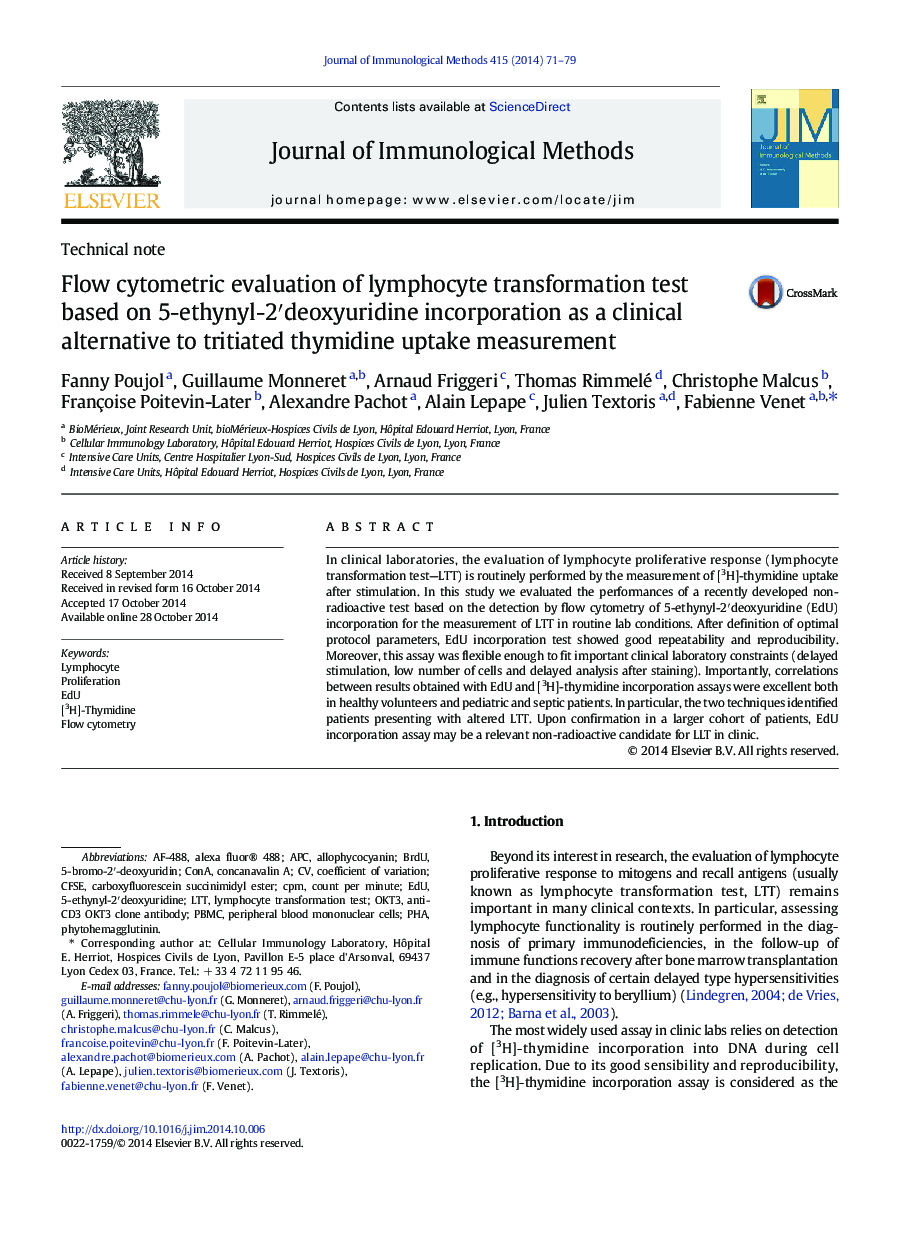| Article ID | Journal | Published Year | Pages | File Type |
|---|---|---|---|---|
| 2088169 | Journal of Immunological Methods | 2014 | 9 Pages |
•Non-radioactive EdU uptake test evaluates lymphocyte proliferation by flow cytometry.•After definition of optimal protocol, EdU uptake test showed good performances.•EdU uptake test was flexible enough to fit important clinical laboratory constraints.•Results from EdU uptake test correlated strongly with [3H]-thymidine uptake assay.•EdU uptake test may be a relevant assay for cell proliferation evaluation in clinic.
In clinical laboratories, the evaluation of lymphocyte proliferative response (lymphocyte transformation test—LTT) is routinely performed by the measurement of [3H]-thymidine uptake after stimulation. In this study we evaluated the performances of a recently developed non-radioactive test based on the detection by flow cytometry of 5-ethynyl-2′deoxyuridine (EdU) incorporation for the measurement of LTT in routine lab conditions. After definition of optimal protocol parameters, EdU incorporation test showed good repeatability and reproducibility. Moreover, this assay was flexible enough to fit important clinical laboratory constraints (delayed stimulation, low number of cells and delayed analysis after staining). Importantly, correlations between results obtained with EdU and [3H]-thymidine incorporation assays were excellent both in healthy volunteers and pediatric and septic patients. In particular, the two techniques identified patients presenting with altered LTT. Upon confirmation in a larger cohort of patients, EdU incorporation assay may be a relevant non-radioactive candidate for LLT in clinic.
